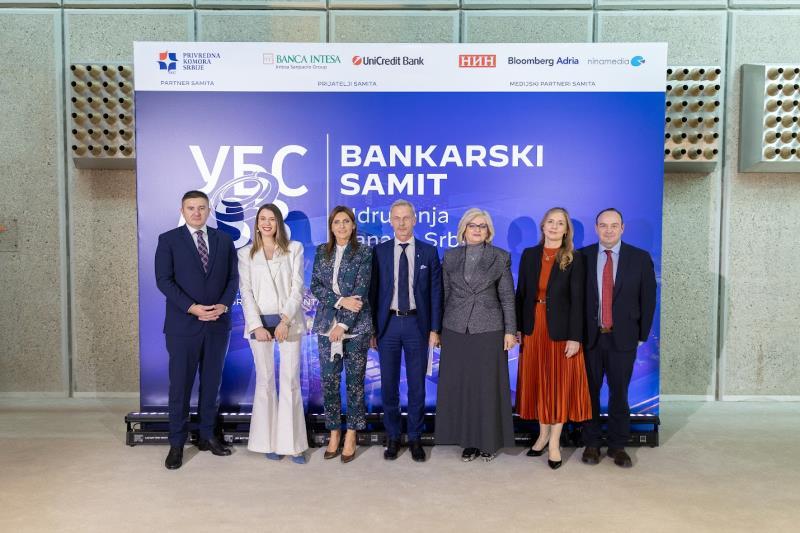Skopje, 6 December 2024
Banking systems in the region successfully coped with the crisis, and their resilience was further strengthened, providing financial support to economies. Regarding the Macedonian banking system, despite the crises, capital adequacy was strengthened, non-performing loans decreased to historically low levels, liquidity remains solid and stable, and lending is at a solid level. This shows that the banking system has the capacity to provide support for economic growth, especially for investments. However, access to finance needs to improve further, and the level of lending activity needs to continue to increase. In the region of the Western Balkans, the loan to GDP ratio ranges from 45 to 55% of GDP, and in the EU over 80% of GDP. This was pointed out by the Governor of the National Bank, Anita Angelovska Bezhoska at the panel discussion of the governors which was held within the Banking Summit, organized by the Association of Serbian Banks in Belgrade. In addition to the Governor, the panel discussion was also attended by her colleagues from the region, the Governor of Serbia, Jorgovanka Tabaković, the Governor of Croatia, Boris Vujčić, as well as the Vice Governor of Montenegro, Nikola Fabris, and the Vice Governor of Bosnia and Herzegovina, Marko Vidaković.

The panel discussion pointed out that despite the consecutive crises, there is still convergence of the countries of the region towards the EU, but at a slower pace. Governor Angelovska Bezhoska pointed to the significant economic losses from the crises that occurred in recent years, with simulations showing that if they had not occurred, convergence would have been higher by 5 percentage points, while the level of gross domestic product would have been higher by 8% at the end of 2024. Moreover, if the Macedonian economy continues to grow at an average historic rate of GDP per capita, it will take 40 years to reach the EU’s income level, which only suggests that it is important to quickly overcome the existing structural obstacles to the economic growth, which will also require adequate financing.
Hence, undoubtedly one of the factors for accelerating convergence, in addition to productivity and labor, is also access to finance. At the panel discussion, the Governor Angelovska Bezhoska emphasized that according to the OECD's convergence progress survey, access to finance is still a challenge for the region, especially access to alternative funding sources. The IMF index, which measures not only the quantity, but also the sophistication of financial intermediation, shows that the region is significantly behind the EU. Hence, further improving financial intermediation in the region will be among the priorities for accelerating convergence in the future.
Governor Angelovska Bezhoska pointed out that the further improvement of financial intermediation in the region can be achieved by encouraging domestic savings, channeling part of the cash savings in euros into the financial system, increasing the access to external sources of financing by attracting foreign direct investments in the financial system, increasing competitiveness, digitalization and inclusion, diversification of the funding sources and further integration into European financial systems, including through the accession to SEPA, for which our country has already submitted an application and expects soon a positive response from the relevant European institutions.